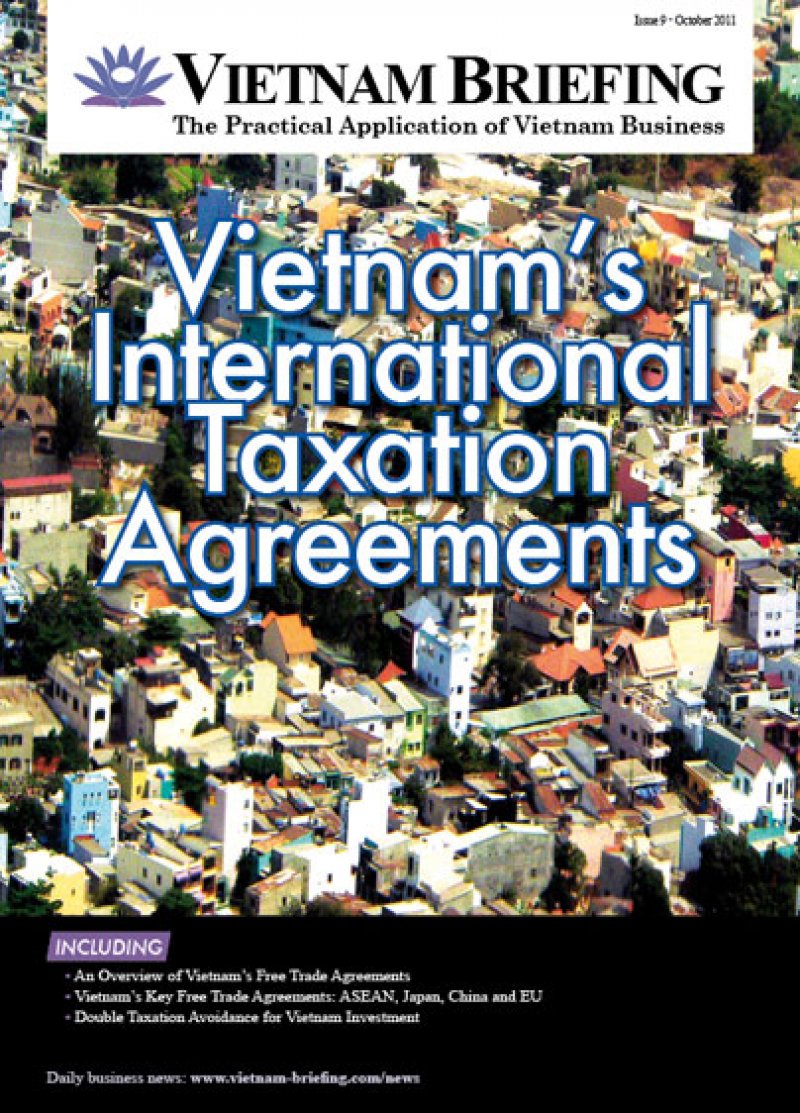
Vietnam’s International Taxation Agreements
Published: October 2011As Vietnam increasingly finds itself on the receiving end of foreign investment and becomes progressively integrated into the global economy, the pace of changes to trade and tax policies can be difficult to keep up with.
No. of Pages: 12 pages
In this issue:
- An Overview of Vietnam’s Free Trade Agreements
- Vietnam’s Key Free Trade Agreements: ASEAN, Japan, China, and EU
- Double Taxation Avoidance for Vietnam Investment
As Vietnam increasingly finds itself on the receiving end of foreign investment and becomes progressively integrated into the global economy, the pace of changes to trade and tax policies can be difficult to keep up with. However, understanding the state’s policy objectives, and understanding the wider context of its trade policy and how it affects one’s investments can make the difference between an investment and a lucrative investment.
In this issue, we will first look at the broader context of global trade and the growing salience of Free Trade Agreements (FTA) between Vietnam and its trade partners. We will examine the effects of current FTAs on Vietnam’s exports, the advantages and disadvantages thus far, as well as the response of Vietnamese enterprises to the policies of the FTAs in effect. Also an in-depth look at key bilateral and regional trade agreements will reveal some telling trends.
Next we will decipher the complex policies and procedures in Vietnam’s Double Taxation Avoidance Agreements (DTAA). In the past, investors and expatriate professionals have found themselves in the costly predicament of paying redundant corporate and income taxes. Fortunately, as of 2011, Vietnam has signed Double Taxation Avoidance Agreements with more than 60 countries and territories, including France, China and Canada. We’ll get down to the nitty-gritty details of eligibility for different corporate entities and individuals, deduction methods, application procedures, and timelines.

